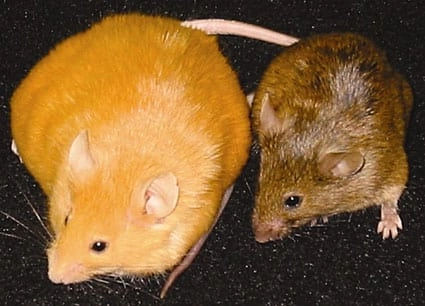 Dr. Pamela Peeke is an internationally renowned physician, scientist and expert in nutrition, metabolism, and integrative medicine.
Dr. Pamela Peeke is an internationally renowned physician, scientist and expert in nutrition, metabolism, and integrative medicine.
Dr. Peeke visits TipsOfTheScale to share insights on Food Addiction, exciting research about the “Fat Gene,” and her Three M’s approach to health.
“You have the tremendous power to affect change, to shape your destiny.”
Professional Background
Dr. Pamela Peeke is founder of the Peeke Performance Center for Healthy Living, a physician, internationally recognized nutrition expert, lifestyle expert for WebMD‘s 90 million members, columnist for Prevention magazine, chief medical correspondent for Discovery Health TV, blogger, speaker, anchor of HerRadio on RadioMD, and author of New York Times’ best-seller The Hunger Fix.
 Dr. Peeke has great passion for what she does and feels like she’s “never worked a day in my life” and “totally lucked out” with her line of work. She loves to teach and help people, regardless of the media.
Dr. Peeke has great passion for what she does and feels like she’s “never worked a day in my life” and “totally lucked out” with her line of work. She loves to teach and help people, regardless of the media.
Dr. Peeke is a physician trained in nutrition and metabolism, which are specialties not usually taught in medical school – even though we’re always cautioned to check with a physician before starting any health & fitness program.
What is Food Addiction?
For years, physicians have seen patients describing addiction symptoms when talking about food. The usual culprits are processed foods with combinations of sugar, salt, and fat.
“They look like jet fuel, and they usually are.”
Some call them “food-like products“, others; “manufactured food”.
Dr. Peeke mentions that Dr. Nora Volkow, Director of the National Center of Drug Abuse in the U.S., has led research using neural imaging tools to peer into the brain and see it’s response to “hyper-palatable foods.” Findings confirmed that these foods negatively influence the brain’s reward system in several ways.
Normally, the brain feels rewards at a baseline level. For example, the sweetness of an apple registers in the brain, and subsequent thoughts of apples prompt hunger at the right times. Natural foods reward to a satisfied level and no further. During this, the reward center of the brain produces dopamine.
To actually feel the reward, dopamine must bond with a receptor in the brain. Without the receptor, all the dopamine in the world activates zero pleasure in the reward center.
In the example of birthday cake, the reward center is spiked beyond normal levels, but then resets to normal later because such a reward is an infrequent occurrence.
However, when fast-food and store-bought sweets are available 24/7, anyone can “score a cake with mile-high frosting anytime, anywhere,” and those levels of reward are no longer infrequent occurrences.
Continuously eating high levels of fatty/sugary/salty combinations (“uber stimulation”) prompts a survival response in the brain. The brain tries to protect itself from overstimulation by decreasing the number of dopamine receptors in the brain, which reduces your perception of reward from those foods. This is your brain and body trying to protect you! The problem is, now you get 10% of the original pleasure from eating the same piece of cake. More of it is needed, and an addiction is created.
How this science has been used against consumers
This was discovered in the 50’s, and in book Salt, Sugar Fat, we are taken behind the scenes with food manufacturers and beverage companies who spent millions discovering the brain’s “Bliss Point.” They worked to ensure manufactured foods hit this point every time.
This isn’t to say “don’t ever eat those foods.” However, eating them frequently can alter your brain’s chemistry in a way that warps your satisfaction level in relation to food.
Dr. Peeke encourages a return to natural whole foods and more cooking! Yes, everyone is time-constrained. If “stress is a disease of time deficiency,” this needs to be a priority. Our children are entering “a battlefield out there” at school, other people’s homes, parties, and what foods/messages are they getting? Do they really need coffee or energy drinks?
Dr. Peeke says it’s less expensive to cook at home – so cook!
“But I have the fat gene, and I can’t lose weight no matter what!”
Dr Peeke drops a bombshell on us here: your diet can change your genetics. Your gene expression, the genetic blueprint you were born with, controls your health and hormones. It is directly affected by your mental state, your diet, and your physical activity. This groundbreaking research is called epigenetics.
In The Hunger Fix, Dr. Peeke covers how epigenetics (“probably the most exciting science of this century”) explores how our environment can affect gene expression. The gene starts with a tendency (diabetes, for example) and can be dampened down or even silenced! The effect can now be observed and measured.
 We were once taught that DNA is unchangeable, but we now know we can dampen down and silence 100% genes you were born with. (Overweight future-parents, listen up!)
We were once taught that DNA is unchangeable, but we now know we can dampen down and silence 100% genes you were born with. (Overweight future-parents, listen up!)
These changes in gene expression are then inheritable by the next generation. We are passing the results of our lifestyle choices on to our children.
So what are manufactured foods doing to your gene expression, and what will they do to that of your children?
“Genetics may load the gun, but environment pulls the trigger.”
The “fat gene” does exist, and is known by science as the FTO gene. An experiment was conducted that intervened by having a group of confirmed FTO-gene carriers simply walk every day.
The result? Over the course of several months, their appetites changed, they dropped weight, they reported feeling better and having less trouble keeping weight off.
Another look at their genes at this point found that their “fat genes” had been silenced by at least 40%.
So what happened when researchers took it a step further and substituted processed foods in the participants’ diets with whole foods?
The Agouti Gene Experiments
[36 mins] The Agouti gene occurs in both mice and humans. In 2007, Dr. Randy Jirtle at Duke University took mice that were going to mate, and fed them greens (spinach, kale, folate – otherwise known as methyl donors), and waited.
Their offspring were born much healthier in appearance. Upon inspecting the mice’s genomes, the Agouti gene in the parents had been 100% silenced, methylated, turned off. In turn, their offspring were born with a completed silenced Agouti gene as well.
 The parents’ nutrition had completely changed their offspring’s genetic starting point in life.
The parents’ nutrition had completely changed their offspring’s genetic starting point in life.
Meditation, physical activity, and nutrition are proven to change gene expression. What does this mean for you?
“You have the tremendous power to affect change, to shape your destiny.”
In summary, even if you have the “fat gene,” your lifestyle choices can help improve your health’s future – and that of your children.
Dr. Peeke’s Tips of The Scale
- Keep a log of what you eat, and how you feel after those meals. When you find those substances that make you feel out of control or extra-hungry, ask yourself: “Do I really need this?”
- Eliminate those foods and see how you feel. Stick to nutritious whole foods – protein with high fiber combinations. Even if you choose to re-introduce those substances later, you will be prepared with knowledge of how it affects your body and cravings.
- Use natural sweeteners for your meals and drinks if you have a sweet tooth: apple sauce, Stevia, or Sam’s favorite – coconut flakes. Stay away from aspartame and Splenda! [Listen around the 48-minute mark for why!]
- Think diet sodas are safe and okay for you? Think again. [ Listen at the 50-minute mark for more!]
- If the scale is a point of torment for you, don’t use it to measure your progress – use your “Clothes-o-Meter”once a week. [Listen after the 54-minute mark.]
- Don’t buy into media depictions of what the “ideal” body or look is. Hop onto the path toward healthier lifestyle changes, and see where it takes you!”
- If you don’t have support, find and join a group that will cheer you on!
[cjtoolbox name=’SWV Box’ ] [/cjtoolbox]
“But does this apply to me?”
Dr. Peeke is clear: there is hope for you. She has done it. Sam has done it, and many, many others out there have as well. The first all-important step is to believe that you can do it.
The next step may be even harder. [1-hour, 1-minute mark] Sometimes making lifestyle changes means also changing the people you surround yourself with. It’s important to take an honest look at who in your life is not supportive or encouraging your dreams and health goals.
If the people you associate with are not supportive, you really need to ask yourself exactly how much you can achieve with those types of people in your life.
What has made others successful?
Dr. Peeke shares some sobering facts based on studies of thousands of people who have successfully lost and kept off their weight over time. What did they have in common?
- Many had to change – or at least be willing to change – their environment. This meant their friends, their job, their social circles, where they lived. They changed whatever it took to make it easier for them to be successful.
- They had a passion in their heart to never return to the condition they were in prior to losing the weight.
Dr. Peeke’s Three M’s
- Mind
Find your “Power Why” – the true, deep reason you want to get healthier. This is a clear, powerful reason that you won’t forget in your weakest moments. Dr. Peeke recommends meditation, which has been scientifically proven to alter your body’s gene expression. - Mouth
Get rid of whatever foods are in your home that you know are bad and shouldn’t be there. Then, replace them with healthy options. - Muscle
Walk! Walk as much as you possibly can. Inexpensive, consumer pedometers and activity trackers (like this) are available, and your goal is to work up to 10,000 steps a day.
Resources mentioned in this podcast
- The Hunger Fix by Dr. Pamela Peeke [ Amazon / iTunes / Audiobook ]
- Fight Fat After Forty by Dr. Pamela Peeke [ Amazon / iTunes / Audiobook ]
- Body For Life by Dr. Pamela Peeke [ Amazon / iTunes / Audiobook ]
- National Weight Control Registry – NWCR tracks over 10,000 individuals who succeeded in long-term weight loss to analyze their habits and behaviors
- WebMD – diet communities for exchange and support
- SparkPeople – health support community
On Dr. Peeke’s Workout Playlist
- It’s My Life by Bon Jovi [ Amazon / iTunes ]
- Stronger by Britney Spears [ Amazon / iTunes ]
- Skyrim Main Theme [ Amazon / iTunes ]
- Deliverance by Yanni [ Amazon / iTunes ]
- Santorini by Yanni [ Amazon / iTunes ]
- WWE Monday Night Raw Theme [ Amazon / iTunes ]
Dr. Peeke Online
- Website: DrPeeke.com
- Facebook: fb/PamPeekeMD
- Twitter: @PamPeekeMD
- The “HerRadio” show on RadioMD: HerRadio





You must be logged in to view comments.